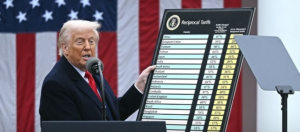The promotion of Onosato Daiki to the esteemed title of yokozuna marks a pivotal moment in sumo wrestling, breaking an eight-year streak of Mongolian dominance and rekindling national pride in Japan’s national sport.
Japan Celebrates the Rise of Onosato Daiki as New Sumo Yokozuna

Japan Celebrates the Rise of Onosato Daiki as New Sumo Yokozuna
Onosato Daiki has made history by becoming Japan's first yokozuna in eight years, a significant milestone in the country’s storied sumo tradition.
In a historic moment for Japan's national sport, Onosato Daiki has been named yokozuna, or grand champion, marking the first time in eight years that a Japanese wrestler has achieved this prestigious title. In a sport where Japanese wrestlers have increasingly been overshadowed by their Mongolian counterparts, the announcement on Wednesday brought considerable excitement and relief among sumo enthusiasts.
Onosato's rise to yokozuna comes after a remarkable performance in the ring, where he secured victories in consecutive top-division tournaments held in Osaka and Tokyo. His promotion is notable as he ascended to this elite level in just 13 tournaments, making it the swiftest climb under the current rules established in the 1950s.
The title of yokozuna is reserved for wrestlers who have demonstrated exceptional skill and achievement, and such distinctions are decided by a council of elder sumo referees. Since the 1600s, 75 wrestlers have held the title, though it has become increasingly rare for a Japanese competitor to earn this honor, with Onosato being only the second to do so in 27 years.
At a news conference following his promotion, Onosato remarked on the significance of this accomplishment, expressing his desire to stay true to his wrestling style while striving to become a unique yokozuna. Presently, the only other yokozuna is Hoshoryu, a Mongolian wrestler who secured his title earlier this year. In the recent May tournament, Onosato outperformed Hoshoryu, finishing with a record of 14-1 compared to Hoshoryu's 12-3.
As Japan embraces Onosato's success, this moment signifies not only a victory for the wrestler but also a renewed connection to Japan's cultural heritage through its national sport of sumo.




















